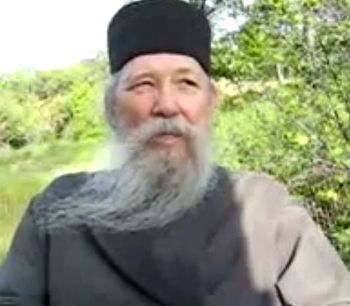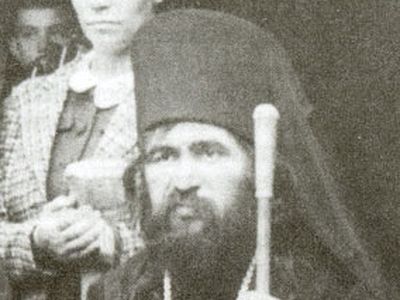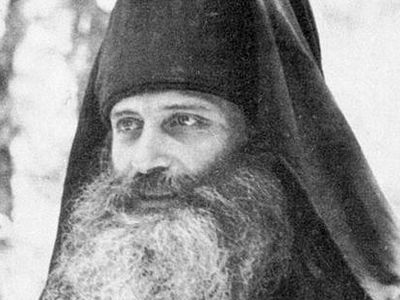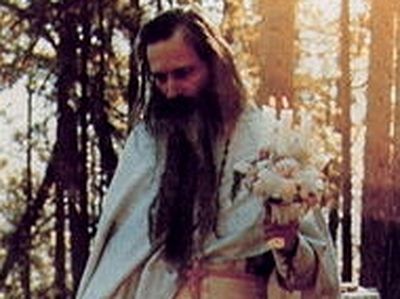Minneapolis, June 30, 2014

One of the most controversial figures in American Orthodoxy today, Fr. Herman was loved by many, but disregarded by others for his violation of Church canons and remaining in disobedience to his ecclesiastical superiors in the Russian Orthodox Church Outside of Russia (ROCOR). He was defrocked by ROCOR in 1988. Fr. Herman’s missionary work continued, in fact bringing many people into the Orthodox faith.
Fr. Herman, born Gleb Dimitrievich Podmoshensky in Riga, Latvia, lost his father to the Communist camps. When the German army occupied Latvia during World War II, he fled with his mother and sister to Germany and the misery of being displaced persons. At age fourteen, he and his family went to the United States to be united with his grandmother, an accomplished ballet dancer, who had earlier immigrated to New York City. Gleb returned to the Orthodox faith of his ancestors as a young adult in America, and graduated from seminary at Holy Trinity Monastery in Jordanville, New York.
Having met Eugene Rose—the future Fr. Seraphim—in San Francisco, the two began publishing an English language periodical called The Orthodox Word, and opened a small Orthodox bookstore near the Holy Virgin Cathedral in that city. Living under the guidance of St. John (Maximovitch) of Shanghai and San Francisco, they resolved after his repose to settle in the wilderness and live the monastic life. After searching for a suitable place, they decided to purchase a parcel of land in northern California, Shasta County. Eventually they would be tonsured monks and ordained priests of ROCOR. Fr. Seraphim reposed in 1982, and Fr. Herman took a turn for the worse not long afterward, leading the monastery brotherhood away from its canonical bishop and finally stepping down from the abbacy in 2000.
The St. Herman of Alaska Monastery now continues its monastic life under the jurisdiction of the Serbian Orthodox Church. The brotherhood currently numbers about twelve. A women’s monastic skete not far from the monastery was also largely his creation, as were two more communities on Spruce Island in Alaska, one for men and the other for women. All three of these communities are now also in the Serbian Orthodox Church.
Besides founding the St. Herman of Alaska Monastery and starting The Orthodox Word, which is still published by the monastery, Fr. Herman renewed the pre-revolutionary Russian language journal entitled Russky Palomnik, or “Russian Pilgrim”. The journal’s launch coincided with the perestroika era in Russia, and it was sent to that country of its origin were Orthodox literature had become scarce, enjoying there immense popularity. Possessing extensive archives of émigré literature and manuscripts, Fr. Herman continued compiling issues of the Russky Palomnik to his final days. The St. Herman of Alaska Brotherhood has also published a substantial number of books using material collected by Fr. Herman, notably a series on the Optina Elders.
The venue and date of Fr. Herman’s funeral is still being decided. His wish was to be buried in the St. Herman of Alaska Monastery in Platina, California. Those who were with him in his final days ask all to pray for his soul’s repose.




